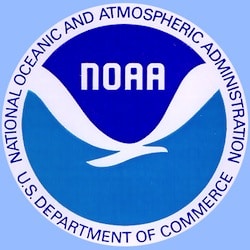This week, the Republican-controlled U.S. House of Representatives sent a strong message to the National Oceanic and Atmospheric Administration (NOAA) – they’re not concerned about climate change. The NOAA had asked Congress for permission to create a new National Climate Service within the NOAA’s own offices, but Congress decided that the agency was just fine the way it is.
At a time when Congress is fiercely debating federal spending, it would seemingly make financial sense to deny additional funding to NOAA to create their new branch. But, in a rare occurrence on Capitol Hill, the new agency wouldn’t have cost anything, and NOAA didn’t ask for a single dime to fund their new venture, completely nullifying any financial argument against this common sense proposal.
The need for such an agency is completely justified, as The Washington Post points out:
Congress barred NOAA from launching what the agency bills as a “one-stop shop” for climate information.
Demand for such data is skyrocketing, NOAA administrator Jane Lubchenco told Congress earlier this year. Farmers are wondering when to plant. Urban planners want to know whether groundwater will stop flowing under subdivisions. Insurance companies need climate data to help them set rates.
So if it wasn’t about money, then what would stop congressional Republicans from giving the OK to the organization? To put it bluntly, they don’t want scientists ‘scaring’ people with their creepy climate change mumbo jumbo.
Again from The Washington Post:
“Our hesitation,” Rep. Andy Harris (R-Md.) told Lubchenco at a hearing in June, “is that the climate services could become little propaganda sources instead of a science source.”
At the same hearing, a key opponent to the service, Rep. Ralph M. Hall (R-Tex.), said he recognized that “certain climate services can provide value.” But he fretted that the reorganization would “severely harm vital research at NOAA.”
In September, Hall’s tone turned decidedly less friendly. As chair of the House Committee on Science, Space and Technology, he launched an investigation of NOAA. Hall claimed the agency was operating “a shadow climate service operation” without congressional approval.
These statements should come as no surprise. Looking at the money that got these two men elected, the Center for Responsive Politics database says that Rep. Hall has received $648,645 from electric utilities and another $571,334 from oil and gas industries over the course of his career, while Rep. Harris has been the recipient of more than $62,000 from the oil and gas industries during his short, 3-year stint as a federally-elected politician. The Washington Post did not comment on the two men’s dirty energy industry campaign money.
What is ironic about the agency’s request, and the Republican disapproval, is that the idea was originally floated many years ago by former President George W. Bush, a man who was no stranger to the oil business. It begs the question as to why an oil-friendly Republican idea was voted down by oil-friendly Republicans this week.
NOAA will continue to compile climate data, but will be forced to spread the data out among its various branches, without a clear and concise methodology for interested parties to seek out this information.
Subscribe to our newsletter
Stay up to date with DeSmog news and alerts






